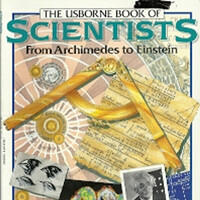Search
Books+
Searching 1,730 books
Search related to the career Astronomer
Astronomer
An astronomer is a scientist who studies celestial objects, such as stars, planets, galaxies, and other phenomena in the universe. They use various tools and techniques to observe and analyze these objects to gain a deeper understanding of their composition, behavior, and evolution.
Job Responsibilities
Astronomers are involved in a wide range of activities, including:
1. Observation: They use telescopes, both ground-based and space-based, to observe celestial objects across different wavelengths of light. They collect data and images to study the properties and movements of these objects.
2. Data Analysis: Astronomers analyze the data collected from observations using mathematical and statistical methods. They interpret the information to draw conclusions about the nature and characteristics of celestial objects.
3. Research: They conduct research to investigate various aspects of the universe, such as the formation of galaxies, the evolution of stars, the existence of exoplanets, and the nature of dark matter and dark energy.
4. Modeling and Simulation: Astronomers develop computer models and simulations to understand complex astronomical phenomena. These models help them test theories and predict the behavior of celestial objects.
5. Teaching and Education: Many astronomers work in academic institutions and universities, where they teach students and mentor aspiring astronomers. They also contribute to public outreach programs to educate the general public about astronomy and space science.
6. Collaboration: Astronomers often collaborate with other scientists, including physicists, mathematicians, and engineers, to tackle interdisciplinary research questions and solve complex problems.
Specializations
Astronomers can specialize in various subfields, including:
1. Planetary Astronomy: Studying planets, moons, asteroids, and comets within our solar system.
2. Stellar Astronomy: Investigating the properties, life cycles, and evolution of stars.
3. Galactic Astronomy: Exploring the structure, dynamics, and evolution of galaxies.
4. Extragalactic Astronomy: Studying objects and phenomena beyond our Milky Way galaxy, such as quasars, black holes, and galaxy clusters.
5. Cosmology: Examining the origin, structure, and evolution of the universe as a whole.
Conclusion
Astronomers play a crucial role in expanding our knowledge of the universe. Through observation, analysis, and research, they contribute to our understanding of the cosmos and help answer fundamental questions about our place in the universe.
Source: Various AI tools
Science
Stem
Professors
Arduino
Books tagged arduino
Biology
Anthropology
Books tagged anthropology
Writers
Radio
Africana studies
Books tagged Africana Studies
Science fiction
Geography
Computer science
Searched in English.











































































